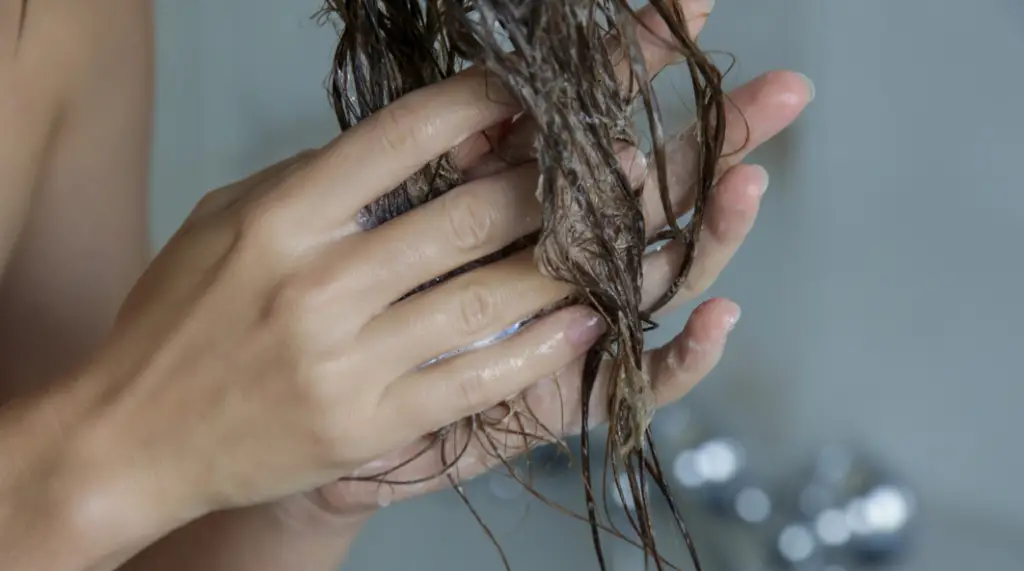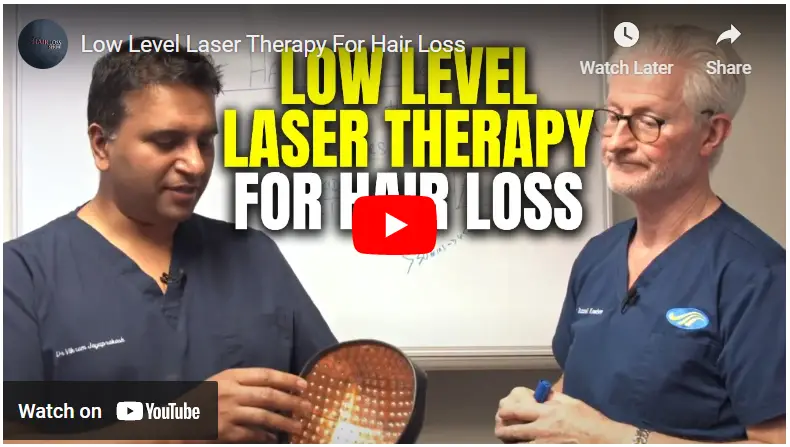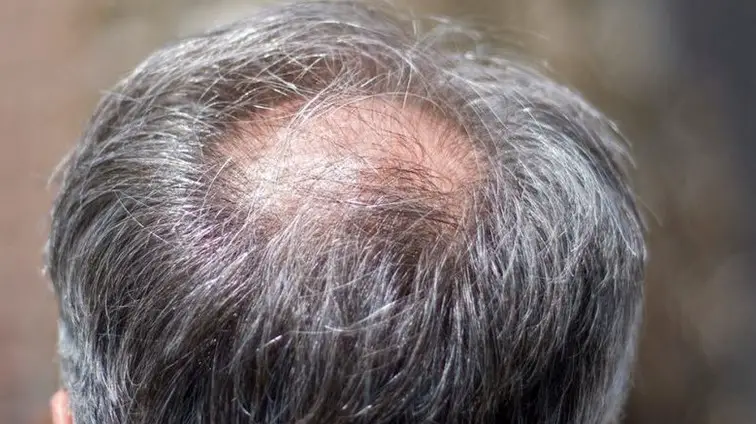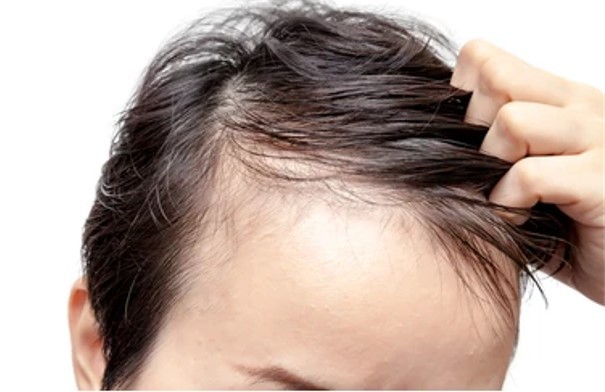Welcome to our comprehensive guide on understanding and managing losing hair in the shower. If you’ve ever noticed strands of hair swirling down the drain or caught in your fingers during a shower, you’re not alone. Many people experience this phenomenon and often wonder, “why am I losing hair in the shower?” or “is it normal to lose hair in the shower?”
In this article, we’ll delve into the science behind hair loss, explore the causes of excessive hair loss in the shower, and provide practical tips on how to prevent it. We’ll also discuss various treatment options available for those experiencing significant hair loss.
Whether you’re a male or female noticing hair falling out in the shower, this article is designed to help you understand why this happens and what you can do about it. We’ll debunk some common hair loss myths and provide you with the knowledge you need to take control of your hair health.
Before we dive in, it’s important to note that hair loss is a complex issue with various potential causes. It’s always a good idea to consult with a healthcare professional or a trichologist if you’re experiencing significant hair loss.
Ready to learn more? Let’s get started! And don’t forget to check out our other articles on related topics, such as normal amount of hair loss in shower and does hot water kill hair follicles, for more in-depth information.
Takeaways:
- Understanding Hair Loss: Hair loss is a common concern that can be caused by various factors including genetics, hormonal changes, stress, and certain medical conditions. It’s normal to lose 50-100 hairs per day, but excessive hair loss can be a sign of underlying health issues.
- Causes of Excessive Hair Loss in the Shower: Excessive hair loss in the shower can be alarming. It can be caused by factors such as harsh hair care products, hot water, stress, and certain medical conditions.
- Preventing Hair Loss: There are several ways to prevent hair loss, including maintaining a healthy diet, avoiding heat and chemical styling, not pulling or tugging at your hair, and managing stress.
- Treatment Options: There are various treatment options available for hair loss, including over-the-counter products, prescription medications, laser therapy, and surgical procedures. It’s important to consult with a healthcare professional to determine the best treatment option for you.
- Frequently Asked Questions: Hair loss can raise a lot of questions. We’ve answered some of the most common ones, including why hair loss occurs, how to prevent it, and what treatments are available.
- Conclusion: While hair loss can be distressing, it’s not insurmountable. There are numerous treatment options available, and lifestyle changes can also make a significant difference.
For more in-depth information on each topic, don’t forget to check out the respective articles linked throughout this guide. Keep in mind that you’re not alone in this journey, and there are resources and support available to help you.
For more insights and advice on hair loss, don’t miss our related articles on hair loss and health conditions and can hair loss be reversed.
The Science Behind Hair Loss
Understanding hair loss begins with a basic knowledge of the hair growth cycle. Human hair grows in a cycle with three distinct phases: Anagen (growth phase), Catagen (transitional phase), and Telogen (resting phase).
During the Anagen phase, your hair follicles are busy producing new hair cells. This phase can last anywhere from two to seven years, and the length of this phase largely determines the maximum length of our hair.
The Catagen phase is a short transitional period that lasts about two weeks. During this phase, the hair follicle shrinks and the hair’s growth slows.
Finally, during the Telogen phase, the hair rests. This phase lasts about three months, and at its end, the hair falls out. But don’t worry, a new hair is already preparing to take its place from the same follicle.
On average, we lose about 50 to 100 hairs per day, which is completely normal and part of this natural cycle. However, when the balance between hair growth and hair shedding is disrupted, or when the hair follicle is destroyed and replaced with scar tissue, hair loss occurs.
Several factors can disrupt the hair growth cycle and lead to excessive hair loss. These include genetics, hormonal changes, poor nutrition, stress, certain medical conditions, and even the way you style and care for your hair.
For instance, if you’ve ever asked yourself, “why do I lose so much hair when I wash it?“, the answer could be related to your hair care routine. Aggressive brushing or combing, using harsh hair products, or frequently wearing hairstyles that pull on the hair (like tight ponytails or braids) can lead to a type of hair loss called traction alopecia.
Understanding these factors can help you take steps to protect your hair and minimize hair loss. For more detailed information on this topic, check out our article on how to tell if you have thinning hair.
In the next section, we’ll delve deeper into the specific causes of hair loss in the shower. But before we move on, remember that understanding your hair’s natural cycle and the factors that can disrupt it is the first step towards healthier hair. So, keep reading, stay informed, and take control of your hair health today!
Causes of Excessive Hair Loss in the Shower
When you notice an increase in hair falling out in the shower, it’s natural to feel concerned. However, it’s important to remember that some hair loss during showering is normal. But when does it cross the line from normal to excessive? And what could be causing this increase in hair loss? Let’s explore.
Normal Hair Loss
On average, it’s normal to lose anywhere from 50 to 100 hairs per day. This number might increase slightly on days when you wash your hair. So, if you’re noticing a few strands of hair in your shower drain or on your hands when you shampoo, it’s likely nothing to worry about. This is part of the natural hair growth cycle we discussed in the previous section. For more information on what constitutes normal hair loss, check out our article on how much hair loss is normal in the shower.
Excessive Hair Loss Causes
However, if you’re noticing large clumps of hair coming out in the shower or if your hair seems to be thinning noticeably, you might be dealing with excessive hair loss. Here are some potential causes:
- Hormonal Changes: Conditions like pregnancy, childbirth, menopause, and thyroid problems can cause hormonal imbalances that lead to increased hair loss.
- Stress: Both physical and emotional stress can cause hair loss. This type of hair loss, known as telogen effluvium, usually occurs a few months after a stressful event.
- Poor Nutrition: Your hair needs certain nutrients to grow, including protein, iron, and vitamins. A diet lacking in these nutrients can lead to hair loss.
- Medical Conditions: Certain medical conditions, like alopecia areata and scalp infections, can cause hair loss.
- Medications: Some medications, including certain antidepressants, blood thinners, and birth control pills, can lead to hair loss.
- Hair Care Practices: As mentioned earlier, harsh hair care practices can lead to hair loss. This includes using harsh hair products, frequently using heat styling tools, and wearing tight hairstyles.
If you’re experiencing excessive hair loss, it’s important to consult with a healthcare professional or a trichologist. They can help determine the cause of your hair loss and suggest appropriate treatments.
In the next section, we’ll discuss some practical tips and lifestyle changes you can make to reduce hair loss in the shower. But before we move on, remember that understanding the potential causes of your hair loss is the first step towards finding a solution. So, keep reading, stay informed, and take control of your hair health today!
For more detailed information on the causes of hair loss, check out our article on Signs Of Balding At 20.
How to Prevent Hair Loss in the Shower
If you’re noticing an increase in hair falling out in the shower, you’re probably wondering what you can do to prevent it. The good news is that there are several steps you can take to reduce hair loss and promote healthy hair growth. Here are some strategies to consider.
Use Gentle Hair Products
One of the simplest ways to prevent hair loss is to use gentle, hair-friendly products. Some shampoos and conditioners contain harsh chemicals that can damage your hair and scalp, leading to increased hair loss. Look for products that are free from sulfates, parabens, and other harsh chemicals. Instead, opt for products that contain natural ingredients known to promote hair health, such as biotin, keratin, and natural oils. For more information on choosing the right hair products, check out our article on the Best Shampoo for Bald Head.
Avoid Hot Showers
Hot water can strip your hair of its natural oils, leaving it dry and brittle. This can lead to increased hair breakage and loss. Try to wash your hair with lukewarm or cool water instead. If you can’t resist a hot shower, at least try to rinse your hair with cool water at the end of your shower to help seal the hair cuticles and promote shine. Learn more about the effects of hot water on hair in our article does hot water kill hair follicles.
Be Gentle When Wet
Your hair is at its most vulnerable when it’s wet. Avoid brushing or combing your hair while it’s wet to prevent breakage. If you need to detangle your hair, use a wide-toothed comb and start from the ends of your hair, working your way up to the roots.
Eat a Balanced Diet
Your diet plays a crucial role in hair health. Ensure you’re getting enough protein, iron, and vitamins A, C, and E in your diet. These nutrients are essential for hair growth. If you’re not getting enough of these nutrients from your diet, you might want to consider taking a hair supplement.
Manage Your Stress
As we discussed earlier, stress can lead to hair loss. Incorporating stress management techniques into your daily routine can help. This might include activities like yoga, meditation, or deep breathing exercises.
Consult a Professional
If you’re experiencing significant hair loss, it’s a good idea to consult with a healthcare professional or a trichologist. They can help determine the cause of your hair loss and suggest appropriate treatments.
Remember, everyone loses some hair in the shower, and it’s nothing to worry about. However, if you’re noticing a significant increase in hair loss, it’s worth taking steps to address it. By following the tips above, you can help protect your hair and keep it looking its best.
For more tips on how to prevent hair loss, check out our article on how to reverse telogen effluvium.
Treatment Options for Hair Loss
When it comes to hair loss, it’s important to remember that you’re not alone. Millions of people around the world experience this condition, and fortunately, there are numerous treatment options available. Let’s explore some of the most effective treatments for hair loss.
Over-the-Counter Treatments
There are several over-the-counter (OTC) treatments available that can help slow down hair loss and even promote new hair growth. These include:
- Minoxidil: Also known as Rogaine, this topical treatment is applied directly to the scalp. It works by prolonging the growth phase of hair follicles, leading to thicker, fuller hair. For more details, read our article on how minoxidil works.
- Finasteride: This is an oral medication that prevents the conversion of testosterone to dihydrotestosterone (DHT), a hormone that can cause hair follicles to shrink and eventually stop producing hair. Learn more about this treatment in our article does finasteride work for hair loss.
Prescription Treatments
If OTC treatments aren’t effective, your doctor may recommend prescription treatments. These can include corticosteroids for inflammatory hair loss conditions or other medications like spironolactone or dutasteride.
Hair Transplant Surgery
For those with significant hair loss, hair transplant surgery may be an option. This procedure involves removing hair follicles from one part of the scalp and transplanting them to the areas of hair loss. While this can be an effective treatment, it’s also more invasive and costly than other options. For more information, check out our article on hair transplant surgery.
Lifestyle Changes
In addition to medical treatments, making certain lifestyle changes can also help reduce hair loss. These include:
- Eating a balanced diet rich in vitamins and minerals that support hair health.
- Avoiding harsh hair treatments and styling techniques that can damage hair.
- Managing stress, as high stress levels can contribute to hair loss.
Alternative Treatments
Some people find success with alternative treatments for hair loss, such as acupuncture, scalp massage, or herbal supplements. However, it’s important to note that the effectiveness of these treatments can vary, and they may not be suitable for everyone.
Remember, it’s important to consult with a healthcare professional before starting any new treatment for hair loss. They can help you understand the potential benefits and risks, and guide you in choosing the treatment that’s best for you.
For more information on treating hair loss, check out our article on how to stop hair loss and regrow hair naturally.
Frequently Asked Questions
When it comes to hair loss, there are a lot of questions that come to mind. Here, we’ve compiled some of the most frequently asked questions about hair loss and provided detailed answers to help you understand this condition better.
Why am I losing so much hair in the shower?
Losing hair in the shower is a common concern, but it’s important to remember that it’s normal to lose up to 100 hairs a day. However, if you notice an excessive amount of hair falling out, it could be due to various factors such as stress, hormonal changes, or certain medical conditions. For a more detailed explanation, check out our article on causes of excessive hair loss in the shower.
Can hair loss be a sign of a more serious condition?
In some cases, hair loss can be a sign of a more serious underlying condition, such as thyroid disease or an autoimmune disorder. If you’re experiencing sudden or severe hair loss, it’s important to consult with a healthcare professional. Learn more about this in our article on hair loss and health conditions.
How can I prevent hair loss?
There are several ways to prevent hair loss, including maintaining a healthy diet, avoiding harsh hair treatments, and managing stress. Certain medications, such as minoxidil and finasteride, can also help prevent hair loss. For more tips, read our article on how to prevent hair loss.
What are the treatment options for hair loss?
Treatment options for hair loss range from over-the-counter treatments like minoxidil and finasteride, to prescription treatments, hair transplant surgery, and lifestyle changes. The best treatment for you will depend on the cause and extent of your hair loss. For a comprehensive guide on treatment options, check out our article on treatment options for hair loss.
Can hair loss be reversed?
In some cases, hair loss can be reversed, especially if it’s due to a temporary factor like stress or a nutritional deficiency. However, for genetic hair loss, while the process can be slowed down, it may not be completely reversible. To understand more about this, read our article on can hair loss be reversed.
Remember, if you’re experiencing hair loss, it’s important to consult with a healthcare professional. They can help determine the cause of your hair loss and guide you in choosing the best treatment options.
For more information on hair loss, check out our related articles:
- The Science Behind Hair Loss
- Causes of Excessive Hair Loss in the Shower
- How to Prevent Hair Loss in the Shower
- Treatment Options for Hair Loss
Conclusion
Hair loss is a common concern for many individuals, and it’s completely normal to lose a certain amount of hair each day. However, when the loss becomes excessive or noticeable, it’s understandable to seek answers and solutions. From understanding the science behind hair loss, identifying the causes of excessive hair loss in the shower, learning how to prevent hair loss, exploring various treatment options, to answering your frequently asked questions, we’ve covered a lot of ground in this comprehensive guide.
Remember, while hair loss can be distressing, it’s not insurmountable. There are numerous treatment options available, and lifestyle changes can also make a significant difference. It’s important to consult with a healthcare professional to understand the cause of your hair loss and to determine the best course of action.
We hope this guide has been helpful in your journey to understand and combat hair loss. For more in-depth information on each topic, don’t forget to check out the respective articles linked throughout this guide. Keep in mind that you’re not alone in this journey, and there are resources and support available to help you.
For more insights and advice on hair loss, don’t miss our related articles on hair loss and health conditions and can hair loss be reversed.
- AI Powered Bald Filter Online 2024: See Yourself with No Hair! - January 19, 2024
- Harklinikken Bad Reviews 2024: Analyzing Negative Feedbacks - January 18, 2024
- How to Get the Alex Eubank Hair | Step-By-Step Tutorial 2024 - January 18, 2024







